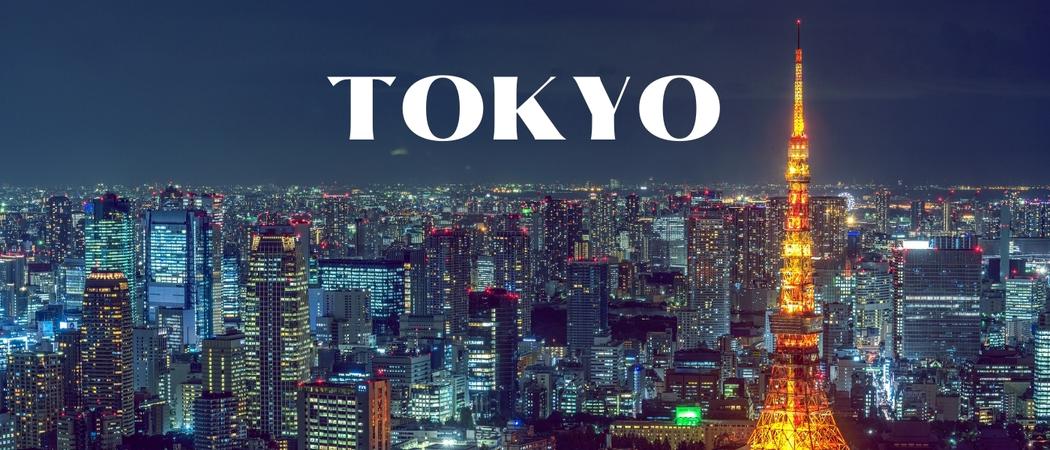Tokyo is an astounding city. Old and new. Ancient and modern. Eccentric and traditional. It’s one of the best places to explore or put down roots. So whether you’re moving in search of new opportunities, a new direction, or a new lifestyle, here are ten reasons to consider Tokyo.
High Standard of Living
Tokyo is a densely packed city. Space is at a premium and small apartments are the norm. However, they are generally well-maintained and comfortable, especially by Western standards. And while housing is notoriously expensive, food, utilities, and appliances are relatively cheap.
What’s more, Japanese neighborhoods are remarkably well-connected. So even though Tokyo is enormous, your basic necessities (supermarkets, shops, restaurants, schools, bus and train stations, etc.) are within easy walking distance.
And unlike some cities which close down early, Tokyo is awake almost 24 hours. Stores are open well into the evening. Cafes serve coffee late at night. Doctors see patients past eight o’clock. This means you can access most of the city’s amenities when it’s convenient for you, rather than the shop owner.
Clean, Reliable Transit System
Tokyo inverts the paradigm of most American cities. There, cars are a necessity. Here, they’re an encumbrance. Most residents don’t own one. Many don’t have driver’s licenses or own “paper licenses” they never use.
And they don’t need to. The trains run like clockwork. They arrive at the station every three minutes. If they’re even a minute late, the conductor will apologize. Once you’re on board, it takes approximately 30-60 minutes to travel from one end of Tokyo to the other, roughly 56 miles.
And like most of Tokyo, trains are clean. Graffiti and litter are almost unheard of. The stations are pristine. As are most of the sidewalks. Neighborhoods organize regular community clean-ups of gutters, squares, parks ‒ citizens even tidy the public toilets!
Safe Streets
While there’s no consensus on which city is the world’s safest (Copenhagen, Toronto, and Singapore have been nominated), Tokyo is frequently listed near the top of the list. If it’s not number one, then it’s usually close.
Crime is so low, people often leave their belongings unguarded while they’re in the bathroom, confident no one will touch them. Women aren’t afraid to walk the streets. Assaults are rare, as is catcalling and other forms of harassment.
Strong Education
Tokyo schools are some of the best in the world. Japanese students are well-educated in math, history, science, art, literature, and social studies. They receive rigorous physical education as well.
However, while public schools are free even for foreign children, most visiting families prefer to enroll their children in one of the city’s international schools. Public schools may provide a stronger grounding in Japanese culture (important if you’re planning a long stay), but international schools typically offer a curriculum similar to the student’s home country. The schools also teach lessons in English, which makes it easier for students to pick up where they left off.
Lovely Parks
Tokyo may be the largest urban landscape in the world, but it’s not made entirely of glass and concrete. The city has hundreds of acres of green space. Most are small, nestled close to people’s homes, but there are 18 major parks as well, including:
- Shinjuku Gyoen. Tokyo’s largest park, famous for its cherry blossoms. It also features an English garden, a French garden, and a greenhouse, where guests can marvel at exotic, subtropical flowers. However, unlike other parks in the city, there is a 500 yen admission fee.
- Yoyogi Park. Built on the site of the 1964 Olympic Village, Yoyogi is best known for its ginkgo tree forest, which turns brilliant gold in autumn. In one of the city’s rowdier parks, musicians and street artists perform here regularly.
- Ueno Park. One of the oldest parks in the city. In spring, people flock to see the cherry blossoms near Shinobazu Pond. The park is also famous for its shrines, which have survived since the 17th century. There are also several museums, including the Tokyo National Museum (containing some of the country’s most beloved cultural artifacts), the Natural History Museum, the Metropolitan Art Museum, the National Museum of Western Art, and the Shitamachi Museum, which offers a glimpse of life in feudal Japan. On the western edge of the park is Ueno Zoo, home to giant pandas.
Endless Entertainment Options
It’s hard staying bored in Tokyo. The city’s attractions are seemingly endless, with more added every day. Imagine:
- Getting Lost in the Teamlab Borderless Digital Art Museum. As you wander the corridors of this self-guided exhibition, surreal and colorful displays transport you from the world of the ordinary to the realm of imagination.
- Visiting the Ghibli Museum. Explore the art and vision behind classic films such as My Neighbor Totoro, Princess Mononoke, and Spirited Away.
- Observing Tokyo From the Top of Sky Circus. More than a mere observation lounge, Sky Circus lets you augment and interact with the view. There are a few ways to better appreciate the size and scale of the city.
- Getting Up Close with Sumo Wrestlers. Watch the wrestlers spar and hone their skills at Tokyo’s sumo stable. You’ll have a new appreciation for the size and strength of these incredible athletes.
- Go-Karting Through the Streets. In America, they race go-karts around a track. In Tokyo, they race go-karts on the streets. Some locations provide costumes from your favorite video games as well. Bring Mario Kart to life as you zip past skyscrapers and automobiles!
- Shopping at Harajuku. Harajuku is a center for cosplay and youth fashion. Wander through small boutiques and major chains selling cute, gothic, and trendy items. Even if you don’t make a purchase, you’ll love the creative fashions.
- Relaxing at Onsen Spa. Take a dip in Japan’s famous hot-spring baths. Infused with minerals, a long soak reduces stress, improves your skin, and promotes health.
Frequent & Exciting Festivals
Japanese work hard and play hard, especially in Tokyo. People here love celebrating their culture, traditions, and history. The city holds dozens of festivals throughout the year. The smaller ones bring neighbors together. The bigger ones electrify the city. You won’t want to miss:
- Kanda Matsuri. Celebrates Japan’s wealth and good fortune. Portable shrines are marched through the city, escorted by priests, musicians, dancers, and horseback riders, all dressed in colorful costumes. Streets are decorated with streamers and banners as each neighborhood pays tribute to its local deity.
- Sanno Matsuri. A huge parade with colorful floats and portable shrines winds its way through the city, starting and ending at the Hie Shrine, home of Ōyamakui-no-kami (Tokyo’s deity). Participants wear traditional Japanese clothing and are allowed to enter the Imperial Palace to pray to the emperor ‒ a rare honor.
- Fukagawa Matsuri. Also known as the water-splashing festival. It celebrates Hachiman, Japan’s divine guardian. Over 200 shrines are carried through the city. And because it’s held in mid-August, visitors throw water to cool off participants and the spirits accompanying them.
- Hanabi. The largest firework festival in Japan. Over 20,000 are fired off in a single night over the Sumida-gawa River in Central Tokyo.
- Sakura. Held in the spring when the cherry blossoms bloom. Picnics and outdoor parties are especially popular this time of year, as thousands of people flock to the parks to enjoy the flowers.
Abundant Restaurants
Tokyo has over 160,000 restaurants, more than any other city on Earth. You can find a noodle shop on almost every street corner, not to mention sushi, ramen, and tempura. But while the city is thoroughly Japanese, it still attracts top chefs from around the world. Its restaurants have earned more Michelin stars than any other place on Earth.
Large Foreign Community
Though Tokyo is friendly and welcoming, Japanese culture differs significantly from the West. Visitors often struggle to fit in. However, while Tokyo is not a multicultural city, it is home to over 2 million foreigners. So no matter where you’re from, it’s likely you’ll find a community that shares your customs, language, and background.
High Demand for English Speakers
English is slowly becoming the lingua franca of the business world. And because Japanese companies do so much business in foreign markets, English skills are in high demand. Native speakers are at a huge advantage therefore when applying for jobs. With a job, you can secure a work visa, which allows you to stay in Japan for up to five years, essential for anyone planning to live there long-term.

ABOUT HAZELWOOD ALLIED
Established in Santa Barbara in 1918, Hazelwood Allied is a full service relocation company providing national relocation and international moves for residential and commercial clients. Known as “The Careful Movers,” Hazelwood Allied is a Santa Barbara moving company with a strong track record for thorough and careful approaches to residential moves and commercial moves. Follow the Facebook page for exclusive offers and moving tips. Call 800-541-5958 for a free moving estimate.






